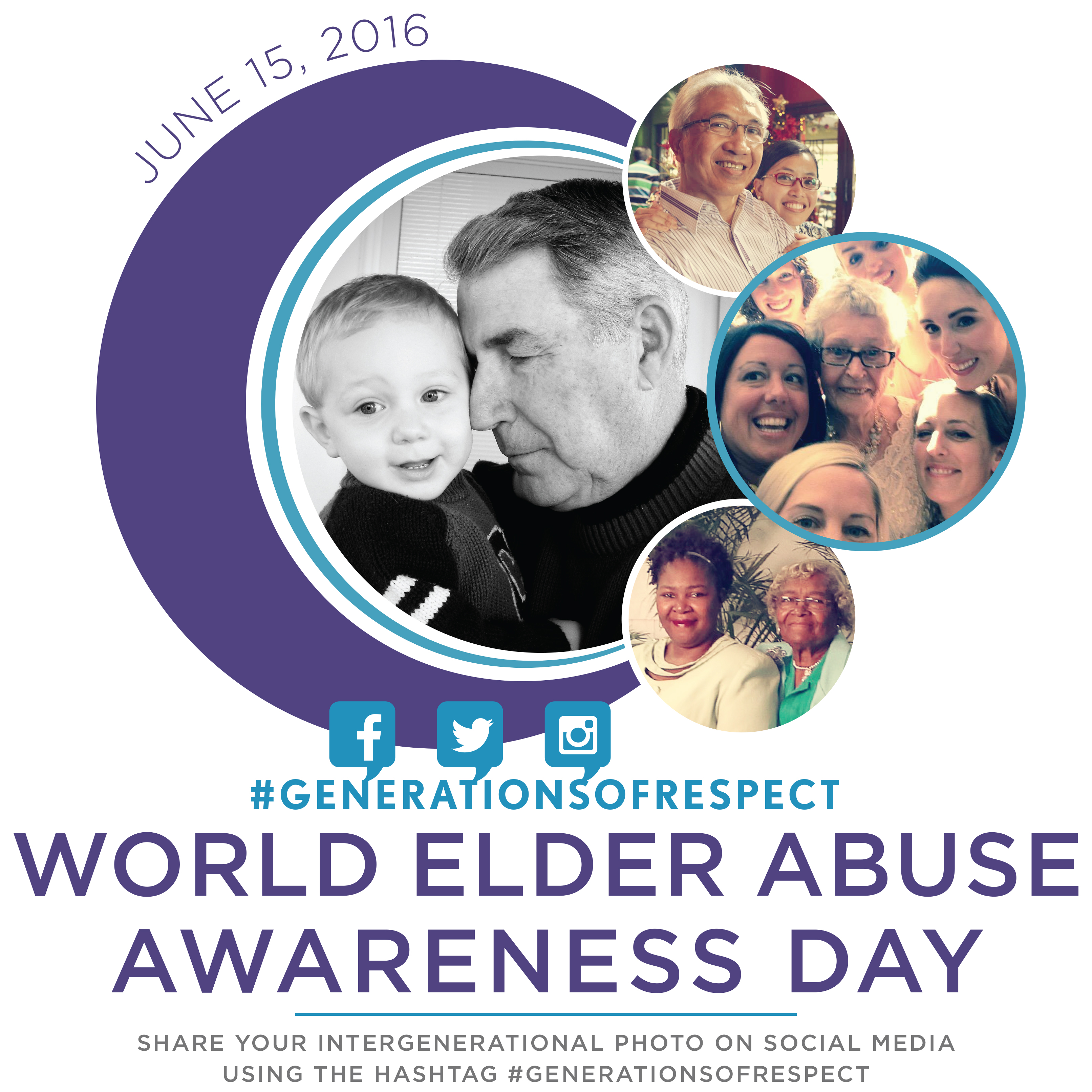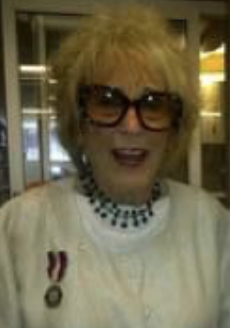- Details
- Published: 02 June 2016
“Imagine all the people
Living life in peace”
John Lennon
June 15th is the eleventh commemoration of World Elder Abuse Awareness Day (WEAAD)! This blog is about the power of imagination... how it helped bring us to where we are today, and how it will frame our vision for tomorrow. Quite simply, if you can imagine something, you can really change the world. Imagination allows us to envision the impossible and lead others to help create it.
Looking back to the very first world day, it took place on a gloriously sunny day at the United Nations (UN) building in New York City (2006). Welcoming remarks were  offered by representatives of the UN and WHO setting the stage for reports from some of the 173 participants who shared the experiences of their organizations. The afternoon was poignant; stories of cases and problems from various countries, the cruelty, the total lack of resources to address elder mistreatment all unfolded. As the day proceeded, it was as if people in attendance sensed something immense. Something big was happening right then and there and that they were not only part of it, but they owned it. This day was a catalyst for change. The spirit of WEAAD has continued to resonate around the world and captivate diverse audiences, every year; expanding projects and programs. We imagined the UN designating June 15th as World Elder Abuse Awareness Day … and it happened in 2010. Now, activities are becoming more sophisticated and creative, leading all the way to the White House in 2012. Who would have imagined?
offered by representatives of the UN and WHO setting the stage for reports from some of the 173 participants who shared the experiences of their organizations. The afternoon was poignant; stories of cases and problems from various countries, the cruelty, the total lack of resources to address elder mistreatment all unfolded. As the day proceeded, it was as if people in attendance sensed something immense. Something big was happening right then and there and that they were not only part of it, but they owned it. This day was a catalyst for change. The spirit of WEAAD has continued to resonate around the world and captivate diverse audiences, every year; expanding projects and programs. We imagined the UN designating June 15th as World Elder Abuse Awareness Day … and it happened in 2010. Now, activities are becoming more sophisticated and creative, leading all the way to the White House in 2012. Who would have imagined?
Because of WEAAD more people know and understand what elder abuse is, there is more recognition of human rights, more research, education, advocacy and policy development. As communities locally, regionally, nationally, and across the world join in activities to heighten awareness of elder abuse, it behooves us all to pause and acknowledge the enormous contribution of volunteers. Volunteers are the backbone of our networks and organizations: their commitment is unparalleled. Inspiring people have nurtured and grown WEAAD over the years: they are the leaders, builders, and innovators, the heroes, the pioneers. Among many others, Assistant Secretary Kathy Greenlee has been a monumental influence in securing government recognition and action. She has opened doors and windows of opportunity that have led to more contact and conversation between individuals and on a personal level through to conference delegates at national events.
WEAAD has brought people and places together. In early days, someone from a developing country spoke about their sense of isolation, that they had no tools or lessons on how to address elder mistreatment in their small community. This woman had miraculously landed at a major conference and her sense of awe was both heartening and heartbreaking. The thirst for information, for inclusion, for sharing, was palpable: this is the true inspiration for world day. This person has gone on to not only bring the broader elder abuse community to her small town, but established a website that now has a global following. Who would have imagined? …
What is next? First we must evaluate: re-imagine our goals and objectives … in other words, how are we doing? We need a world survey for information, we need to do a social and economic cost analysis of WEAAD, we need to ask some tough questions. What we really need is a National Strategy on Elder Abuse for each country: this then would beautifully segue into a World Institute on the Prevention of Elder Abuse (WIPEA) … Remember, this blog is about imagination!
Pursuant to the above, there has been discussion on how to scale up WEAAD from the very first day of commemoration. Here is a very bold, exciting and doable answer to that. We return to the UN and request they proclaim a United Nations International Decade on Elder Justice. Such recognition will give the issue of elder mistreatment and elder human rights the voice, sustainability and respect it deserves and needs. This will definitely be the next chapter in our narrative.
“You may say I’m a dreamer.
But I’m not the only one.”
-
Listen to Elizabeth Podnieks talk about the power of networks in our special WEAAD webinar on June 10, 2016 - 1pm Eastern Time.
About the author:
 Elizabeth Podnieks is one of the founding members of three key organizations in this area: Elder Abuse Ontario (formerly Ontario Network for the Prevention of Elder Abuse - ONPEA), CNPEA, and the International Network for the Prevention of Elder Abuse (INPEA). She has served on the Executive for all three bodies, and has actively promoted the value of Networks at all levels. She was the architect of World Elder Abuse Awareness Day (WEAAD) in 2003 and Chair of the WEAAD Steering Committee.
Elizabeth Podnieks is one of the founding members of three key organizations in this area: Elder Abuse Ontario (formerly Ontario Network for the Prevention of Elder Abuse - ONPEA), CNPEA, and the International Network for the Prevention of Elder Abuse (INPEA). She has served on the Executive for all three bodies, and has actively promoted the value of Networks at all levels. She was the architect of World Elder Abuse Awareness Day (WEAAD) in 2003 and Chair of the WEAAD Steering Committee.
For nearly a quarter century, Elizabeth has conducted research and published extensively in the area of abuse and neglect, as well as having supported the efforts of others. She has presented at numerous conferences, workshops, scientific and educational meetings at both the national and international level.
She received the Order of Canada for her work in the area of abuse prevention, including the first Canadian incidence study in 1989. On June 14th 2012, she also received the Queen Elizabeth II Golden Jubilee Medal in recognition of her lifetime commitment and efforts. Elizabeth was recently elected honorary director of the National Committee for the Prevention of Elder Abuse. (United States). She has been the source of passion and imagination on numerous initiatives in this area. She generated the project "World Elder Abuse Awareness Day (WEAAD) in Cyberspace" working with national and international partners to harness social media in raising awareness of senior abuse.
Elizabeth received the National Adult Protective Services Association (NAPSA) National Rosalie Wolf Award 2013 and the International Network for the Prevention of Elder Abuse (INPEA)International Rosalie Wolf Award for 2013, becoming the first person to be recipient of two Rosalie Wolf awards in the same year.

















